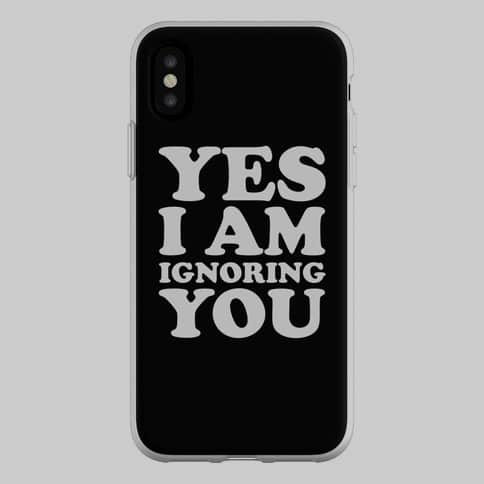On Phones and Phubbing
June 7, 2019
3 min read

On Phones and Phubbing
In 2007 Neil Gaiman published a magnificent book called ‘American Gods’ in which, among many things, his protagonist Shadow speaks to ‘Television’, a modern god personified on the screen as the beloved fictional character Lucy Ricardo.
“‘The TV’s the altar. I’m what people are sacrificing to.’
’What do they sacrifice?’ asked Shadow.
’Their time, mostly,’ said Lucy. ‘Sometimes each other.”
In 2019 it is safe to say many of us sacrifice our time and sometimes each other to our phones more than anything else. There is an acute dismissiveness when someone nods and mumbles in your general direction while checking something on their screen—the ‘what is’ being ignored for the ‘what could be.’ Psychologists call this “Phubbing”, snubbing others in favor of your phone.

Demetrius Freeman mentions this in a recent article in which he describes his struggle to limit his own phone use and restrict unhealthy habits. Despite having many justifications for using his phone so much he embarks on a cleansing journey with help of a specialist. His excuses for spending so much time staring into the digital abyss sound very familiar to me, I’ve used them before.
-
I need it for work, it’s a professional necessity.
-
I’m staying up to date with news.
-
People expect me to stay in contact, I can’t just disappear.
-
What if there is an emergency!
-
I only use it when I’m alone.
And so it goes.
One tool he suggests which I have found very useful is asking three questions every time you reach for the phone. “What for? Why now? What else?” I take this as: Is there a specific reason you are reaching for it? If yes does it have to be right now? If yes what else could you do instead?”
Here are some statistics about phone usage, you can see more info here but below are some interesting realities that you can measure your own use against.
-
The average American checks their phone 47 times a day.
-
The average phone user spends 171 minutes a day on their phone (2 hrs 51 mins).
-
The average user will tap, swipe, or click their phone 2,617 times a day
-
Teenagers who spend 5 hours a day on electronic devices are 71% more likely to have suicide risk factors than those with 1 hours use.
-
8th graders who are heavy users of social media have a 27% higher risk of depression
For us as a gap program this presents a difficult challenge. We want our young people to have meaningful and interpersonal experiences here. We want them to face themselves and each other without the distractions and easy answers phones offer. At the same time all young adults have phones, are attached to them to some degree and need them to communicate with friends and family. It almost seems cruel to force them to detach from their screens entirely.
Agency in itself is important. Lasting change only happens when individuals recognize something as a problem and decide to make different choices. So is it a problem? We find that Freeman’s experience of disconnecting holds some big truths. If we provide opportunities for folks to experience real connection without their devices, will they make the correlation?



